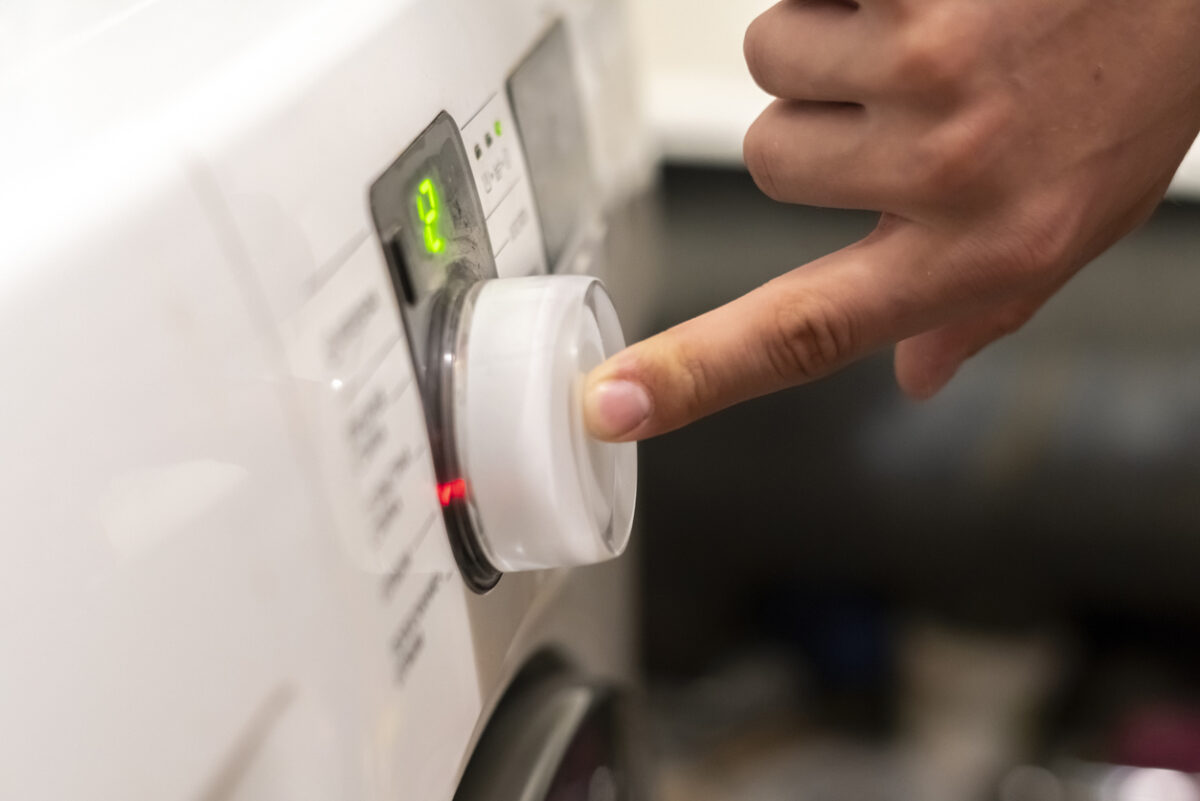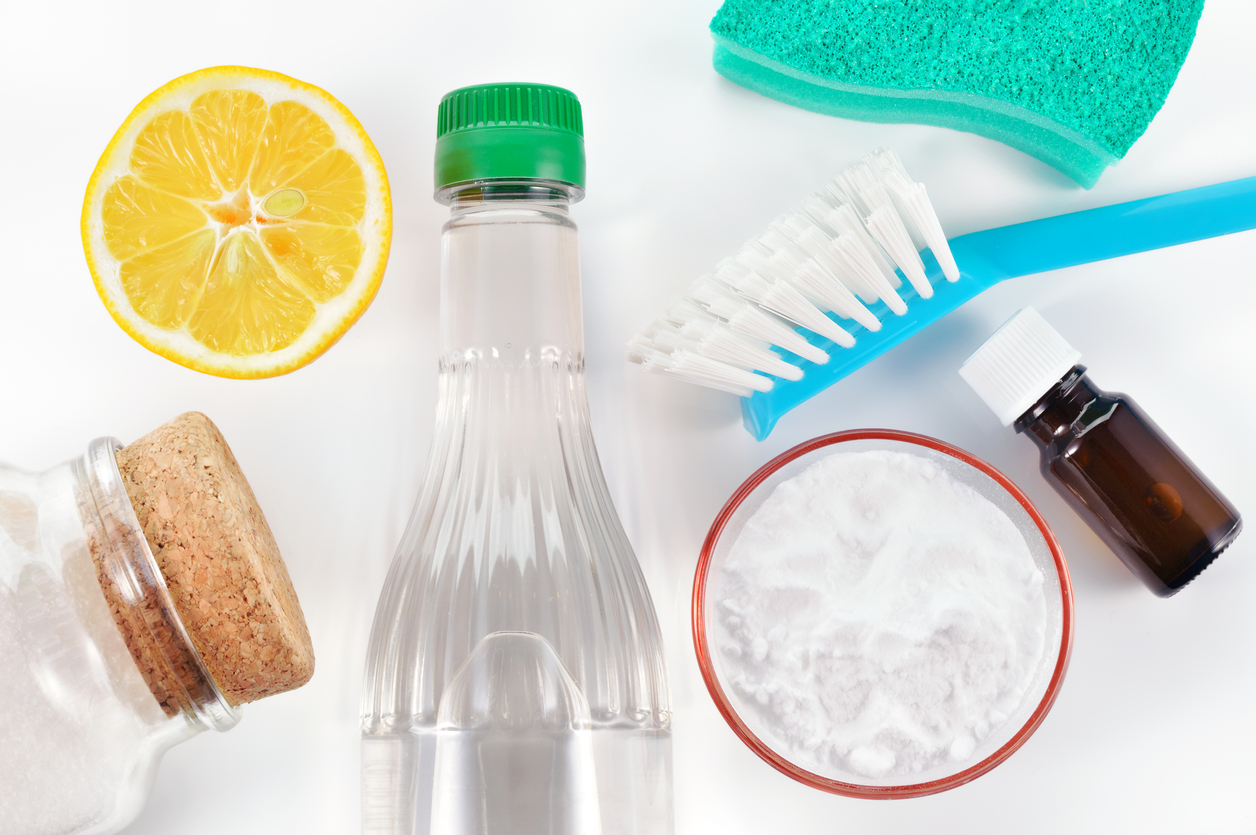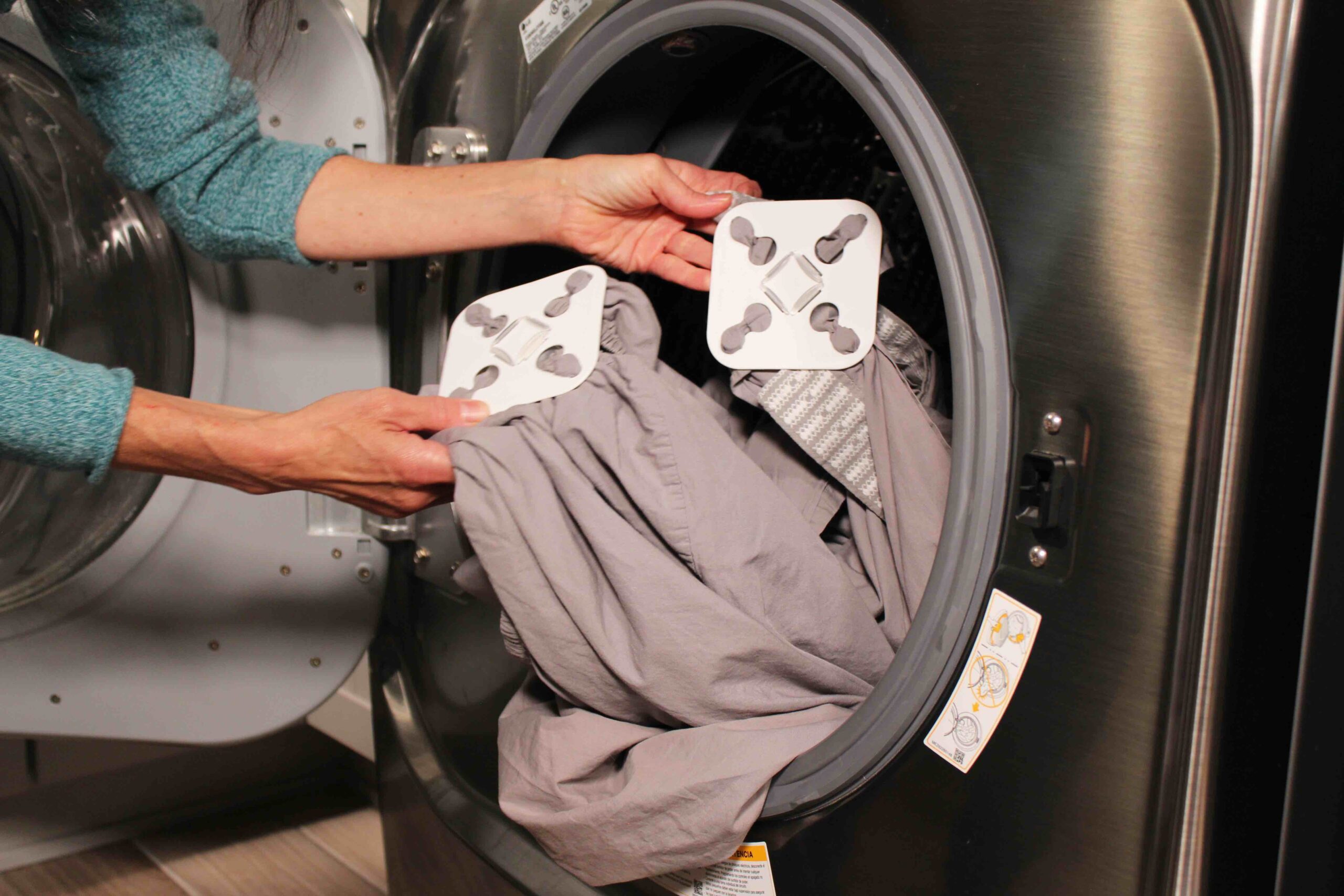

We may earn revenue from the products available on this page and participate in affiliate programs. Learn More ›
The old rules of washing colors in cold water and whites in hot water are fading as consumers become more eco-conscious about energy usage. However, some confusion lingers about the best temperature for washing clothes at home. Are there benefits to washing clothes in cold water versus hot water, and—above all—does cold water effectively clean clothes?
Rest assured that it is OK to wash your clothes in cold water. According to cleaning product manufacturer lobby American Cleaning Institute (ACI), washing clothes in cold water as instructed by care labels can prolong garments’ life and vibrancy and prevent shrinkage. The same is true for linens and other home textiles, many of which can be machine washed at home.
According to U.S. government-run Energy Star, heating water consumes about 90 percent of the energy needed for washing machine operation, and switching from a hot to warm cycle cuts that energy use in half. ACI initiative Cold Water Saves claims that a household using cold water for laundry for 1 year conserves the amount of energy used to drive a car up to 421 miles. Meanwhile, the Sierra Club reported that for every household that switches to cold-water washing, about 1,600 pounds of carbon dioxide emissions a year could be eliminated.
RELATED: Solved! What to Do When There’s No Hot Water
Experts Explain the Basics

Home appliances have come a long way in recent years. Today’s washers and dryers are increasingly sophisticated and energy efficient, making cold-water washing viable for clothing and home fashions.
“Cold water is effective when used on the right types of fabric, like cottons or linens,” notes Whirlpool Brand Manager Shawn Ashby. “Choosing the right cycle starts with how you sort clothes, and you’ll want to sort by the fabric type first. Whirlpool brand recommends washing cotton and linen clothing with bright and dark colors on a cold-water wash setting. This will prevent the colors from bleeding from newer items.”
As GE Appliances Executive Director of Product Management – Clothes Care Michael Mattingly points out, “From a care perspective, fabrics prefer cold water. In general, the hotter the water, the more potential there is for damage such as shrinkage and color loss to the fabric.” When it comes to severely soiled or stained fabrics, though, you might have to up the wash temperature—but only on certain types of stains, such as oil or grease. Despite warmer temperatures typically improving cleaning performance, Mattingly says some stains need cold- water treatment. “For example,” he notes, “protein-based stains, such as blood or dairy, can set permanently if warm water is used initially.”
Leading Manufacturers Recommend Cold Water

The evolution of fiber and finishing technologies has led to many clothes and home furnishings being designed for cleaning in cold water. Many products now receive special antimicrobial treatments that keep fabrics fresher for longer, even with daily use.
“[Lenzing-branded Tencel] fibers create an unfavorable environment for bacteria or dust-mite growth; this is derived by the exceptional moisture management of the fibers, leaving no moisture for bacteria or dust mites to feed on,” explains Walter Bridgham, senior business development manager for global fiber producer Lenzing. He says he washes his sheets “in cold water with a Tide pod and an OxiClean pod,” then dries them with wool dryer balls for a “super soft, clean sheet with minimized wrinkles.”
Brad Speaks, vice president of product development and innovation for the U.S. division of Trident Group (the world’s largest manufacturer of terry towels), explains, “Materials made of hydrophobic fibers—polyester, nylon, or any fiber that repels stains and water—get cleaner in cold water than material made of hydrophilic fibers, which absorb moisture like cotton fabrics do.” He adds, “All of our products are offered with or without antimicrobial treatments. If freshness is the concern, we recommend one of these finishes.”
Katy Chapman, senior vice president of marketing for home fashion supplier CHF Industries, notes, “All daily-use apparel and furnishings can be cleaned in cold water effectively. Most of our products can be washed in cold water using available detergents. In fact, we recommend it specifically for natural fibers such as cotton or silk, delicate fabrics, and cotton/bamboo blends to minimize shrinking, color fading, and wrinkles.” Modern detergents and washing machines also make cold water more effective. As Chapman describes, “Not only are modern washers designed for cold water, but many detergents have enzymes that can start to work in temperatures as low as 60 degrees Fahrenheit, and cold-water detergent also enhances results.”
Decorative items like quilts, comforters, pillows, and window treatments all benefit from cold-water washing as well. “You can trust cold water, as it doesn’t damage fabrics,” explains Nancy Golden, senior vice president of merchandising for Triangle Home Fashions. “Cold water also helps avoid shrinkage and fading, while hot water often sets stains versus removing stains. Follow all care instructions on the sewn-in label for best results. We generally recommend that you use a front-load commercial-grade washer and dryer; machine-wash cold on delicate cycle; use only non-chlorine bleach, if needed; and tumble dry low.”
RELATED: The 13 Best Things You Can Buy for Your Laundry Room (for Under $50)
Should You Use Additives?

Plenty of laundry advice out there comes with recommendations for one type of additive or another, such as laundry sanitizer, bleach, borax, vinegar, baking soda, or salt. But the bottom line is that using the proper amount of high-efficiency detergent and the correct setting on your washing machine negates the need for any additives. As Ashby notes, “Whirlpool brand does not recommend any specific additives.”
That said, some tough stains may benefit from pretreatment with a stain remover. “If you have a product with stains, then pretreat the product before washing so you get better stain removal results,” recommends Chapman. “But otherwise, [CHF Industries doesn’t] recommend additives, as commonly available detergents have everything you need for clean laundry.”
RELATED: 13 Tricks for Getting Your Laundry Folded Faster
Laundering Tips and Tricks

Making laundry day more environmentally friendly goes beyond simply lowering the water temperature. Energy Star recommends using the proper amount of high-efficiency detergent, switching to Energy Star-certified front-loading washers and dryers, exclusively running full loads, and performing regular appliance maintenance. And remember to wash your washing machine; cleaning your washer can help keep it operating in tip-top shape.
While exploring more eco-friendly ways to wash your clothes, don’t forget about the dryer! Try out some laundry accessories that help speed drying times and save energy. For example, a new product called Wad-Free helps prevent sheets from twisting and tangling in the dryer, and wool dryer balls can reduce wrinkles, speed up drying, and prevent static cling.
